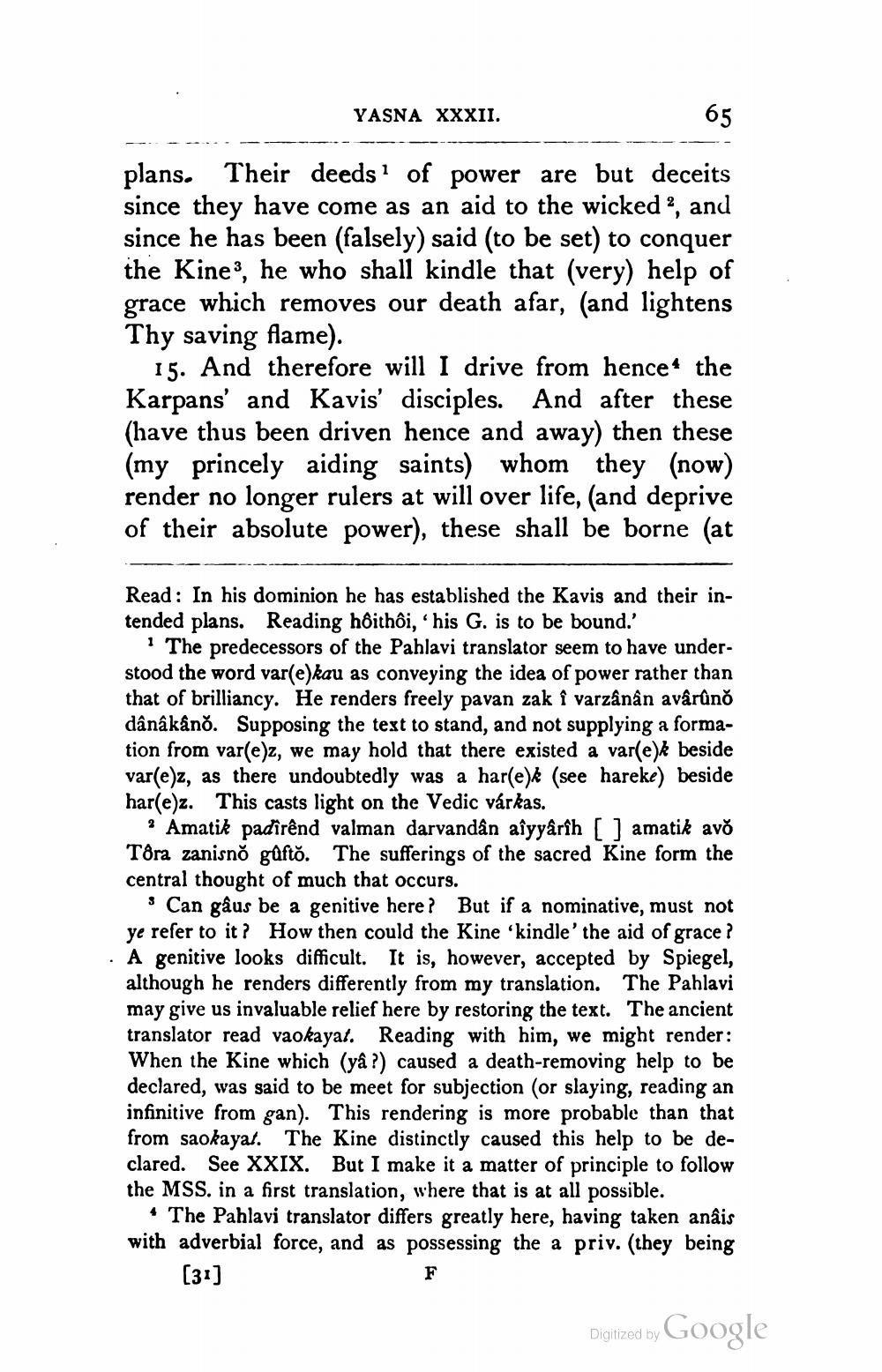________________
YASNA XXXII.
plans. Their deeds of power are but deceits since they have come as an aid to the wicked ?, and since he has been (falsely) said (to be set) to conquer the Kine", he who shall kindle that (very) help of grace which removes our death afar, (and lightens Thy saving flame).
15. And therefore will I drive from hence the Karpans' and Kavis' disciples. And after these (have thus been driven hence and away) then these (my princely aiding saints) whom they (now) render no longer rulers at will over life, (and deprive of their absolute power), these shall be borne (at
Read: In his dominion he has established the Kavis and their intended plans. Reading hồithôi, “his G. is to be bound.'
"The predecessors of the Pahlavi translator seem to have understood the word var(e)kau as conveying the idea of power rather than that of brilliancy. He renders freely pavan zak i varzanan avârûno dânâkâno. Supposing the text to stand, and not supplying a formation from var(e)z, we may hold that there existed a var(e)k beside var(e)z, as there undoubtedly was a har(e)k (see hareke) beside har(e)z. This casts light on the Vedic várkas.
· Amatik padirênd valman darvandân aiyyârîh [ ] amatik avě Tðra zanisno gufto. The sufferings of the sacred Kine form the central thought of much that occurs.
Can gâus be a genitive here? But if a nominative, must not ye refer to it? How then could the Kine 'kindle' the aid of grace? A genitive looks difficult. It is, however, accepted by Spiegel, although he renders differently from my translation. The Pahlavi may give us invaluable relief here by restoring the text. The ancient translator read vao kayat. Reading with him, we might render: When the Kine which (ya?) caused a death-removing help to be declared, was said to be meet for subjection (or slaying, reading an infinitive from gan). This rendering is more probable than that from saokayat. The Kine distinctly caused this help to be declared. See XXIX. But I make it a matter of principle to follow the MSS. in a first translation, where that is at all possible.
The Pahlavi translator differs greatly here, having taken anâis with adverbial force, and as possessing the a priv. (they being
(31)
Digitized by
Digitized by Google




